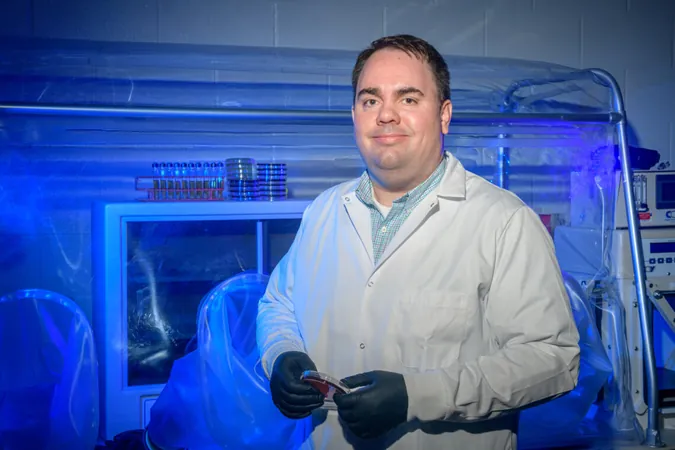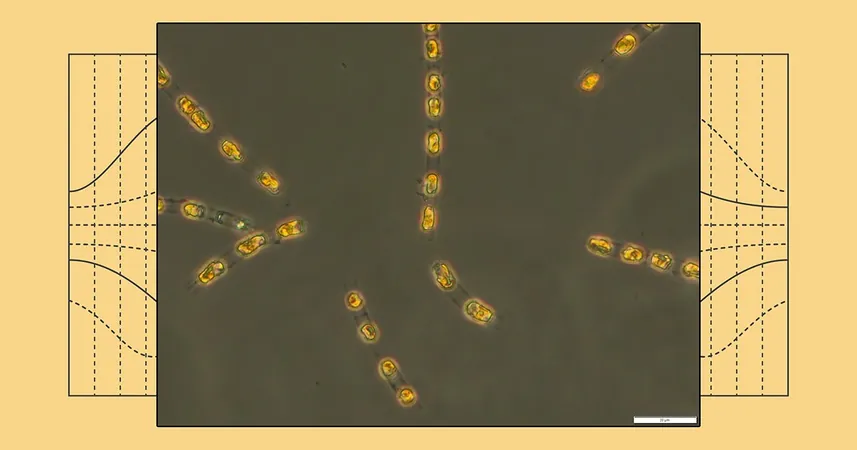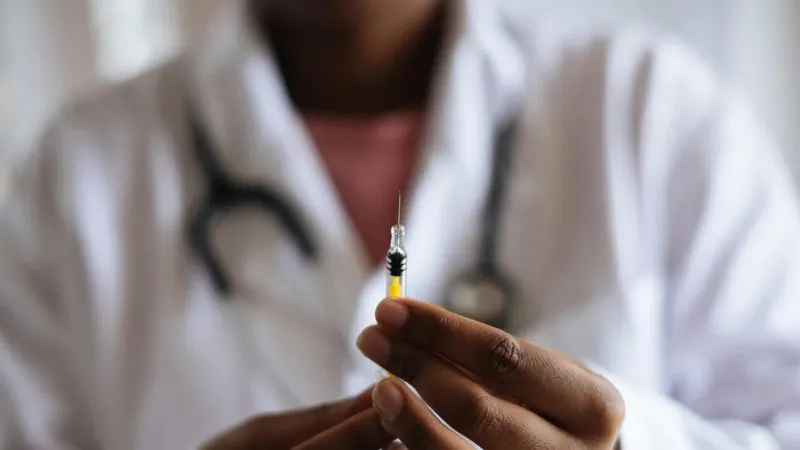
How Your Gut Microbiome Can Make or Break Your Health!
2025-04-08
Author: Charlotte
Did you know that your gut is home to trillions of tiny microorganisms that can significantly impact your health? Welcome to the fascinating world of the gut microbiome! According to Chris Gaulke, a professor of pathobiology at the University of Illinois Urbana-Champaign, these gut residents are far more than just bacteria; they encompass viruses, fungi, and microscopic eukaryotes that can completely transform your overall well-being.
What Exactly Is the Gut Microbiome?
Your gut microbiome is a community of diverse microorganisms residing in your digestive tract. Though we often associate bacteria with sickness, these tiny entities actually play crucial roles in maintaining our health! They help in digesting your food, training your immune system, and even providing a defense mechanism against harmful pathogens.
In essence, these gut residents are like your internal guardians, working tirelessly to keep you healthy and stave off illness.
The Gut Microbiome’s Role in Nutrition and Digestion
The gut microbiome is essential for proper nutrition and digestive health. Some microbes can break down indigestible fibers that we cannot process, creating beneficial compounds known as short-chain fatty acids. These compounds not only have anti-inflammatory properties but also serve as a key energy source for our cells. Moreover, these microbial allies produce vital micronutrients, such as certain vitamins, increasing our nutrient absorption capability.
An intriguing aspect is how the gut microbiome influences our immune system. From infancy, it guides immune cells to their necessary locations and continually stimulates an active defense against invading pathogens as we grow.
The Impact of Your Diet on Your Gut Microbiome
Your dietary choices significantly affect the composition of your gut microbiome. Transitioning from a plant-based to an animal protein-rich diet can alter your gut's microbial landscape in a matter of hours! Since the gut functions like an ecosystem, the food we consume directly shapes which microbes flourish or wither away.
For instance, a diet rich in fiber promotes the growth of bacteria that produce beneficial short-chain fatty acids, crucial for your health. Nutritionists often recommend increasing fiber intake to nourish your gut microbiome.
Antibiotics, Probiotics, and Detoxes: What You Need to Know!
But what happens to your gut microbiome when you take antibiotics? The impact greatly varies among individuals and depends on the type of antibiotic used. While some antibiotics are broad-spectrum and kill diverse bacteria, others target specific species. Generally, antibiotics reduce the overall bacterial population, which can result in a completely altered gut microbiome or a return to its original state—again, this varies person to person.
Probiotics and prebiotics are generally harmless and can provide benefits, although their efficacy can differ widely between individuals. After taking antibiotics, some people find relief from digestive issues when taking probiotics or prebiotics; however, these beneficial microorganisms rarely establish permanent colonies in the gut.
As for detoxes, they can be a double-edged sword. On one hand, they claim to cleanse your system, but on the other, they can wreak havoc on your gut. It’s akin to setting a delicate ecosystem ablaze—some microbes may thrive, while others may perish. For this reason, many experts, including Gaulke, recommend proceeding with caution regarding detox programs.
The Gut Microbiome and Cancer: A Rising Concern
Emerging research is uncovering the controversial role that the gut microbiome may play in cancer, particularly colorectal cancer rates which have seen a troubling rise among younger populations. Certain microbes can produce byproducts that damage DNA, potentially leading to cancer. However, the research is still in its early stages. Scientists are trying to determine whether these microorganisms are merely passengers in the cancer journey or if they actively contribute to tumor growth.
Though some bacteria have been linked to colorectal and gastrointestinal cancers, we still don’t fully understand why some people develop cancer while others do not, even when harboring similar microbial communities. This remains a lively area of research as we seek to decipher the microbiome's intricate connections to cancer.
Your Gut, Your Health: The Bottom Line
Your gut microbiome is an essential player in your overall health, affecting everything from digestion to immune response and even cancer risk. Therefore, taking care of your gut flora should be a priority. Opt for a balanced diet rich in fiber, be cautious with antibiotics, and approach detox regimens with care. Your gut flora will thank you!
Stay tuned for more insights into the magical world within you—because your health literally starts in your gut!









 Brasil (PT)
Brasil (PT)
 Canada (EN)
Canada (EN)
 Chile (ES)
Chile (ES)
 Česko (CS)
Česko (CS)
 대한민국 (KO)
대한민국 (KO)
 España (ES)
España (ES)
 France (FR)
France (FR)
 Hong Kong (EN)
Hong Kong (EN)
 Italia (IT)
Italia (IT)
 日本 (JA)
日本 (JA)
 Magyarország (HU)
Magyarország (HU)
 Norge (NO)
Norge (NO)
 Polska (PL)
Polska (PL)
 Schweiz (DE)
Schweiz (DE)
 Singapore (EN)
Singapore (EN)
 Sverige (SV)
Sverige (SV)
 Suomi (FI)
Suomi (FI)
 Türkiye (TR)
Türkiye (TR)
 الإمارات العربية المتحدة (AR)
الإمارات العربية المتحدة (AR)